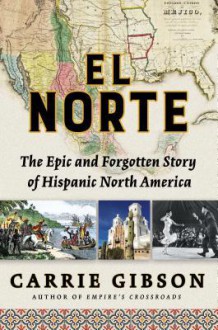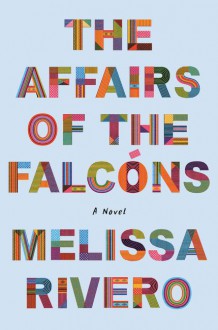
I thank NetGalley and St. Martin’s (MacMillan) for providing me an early ARC copy of this book that I freely chose to review.
Although I don’t normally look at the reviews of a book in detail before I read it (I do to decide if I’m interested in reading the book or not, but I don’t want to spoil my enjoyment), because I update my current reading on several book sites, I can’t help but see what the general ratings for the book I’m about to start reading look like. Let me tell you I was alarmed when I saw how many 1 star reviews this book had. I was even more concerned because, based on the description, I had agreed to participate in a Blog tour, and I was worried about having made a serious mistake and having to vow out of it. Luckily, I enjoyed the book (yes, it’s far from perfect, but I wasn’t expecting perfection), and I wonder if having read the reviews and getting a clear idea of what had upset other readers didn’t prepare me for what was to come and helped me not go into it with false expectations.
The cover, I think, can make people expect a “sweet” or “cute” romance. Well, that, it is not. The description hints at the personality of Angel (perhaps more accurately than that of Duke, whom many readers didn’t like at all), but readers might have expected a more standard romance, where the romantic side of things is the main story. I agree with the readers who said this novel has a lot of “drama”. Oh, yes, it does. It is like a melodrama on steroids, rough around the edges, and it feels like a fairly extreme soap opera. People wear their hearts (and rage) on their sleeves, they don’t do stiff-upper-lip or measured emotions, and they throw themselves headlong into life. It might be because I’m Spanish and we are supposed to be “red-blooded” (what other colour our blood would be, I have no idea), “passionate”, and “hot tempered” and those attributes (I don’t think they are always helpful, but I refuse to call them defects) are also expected of Latinos in general, and because I’ve watched and enjoyed Central and South-American soap operas, but I did like the oomph of Angel, the main character, even if she was not always consistent (but hey, I’ve never found characters in romantic novels or chick-lit entirely consistent). In some ways, her part of the story has strong elements of women’s fiction, even if the style of writing is different. A young Puerto-Rican woman, a single mother from a young age, she’s had to fight against the odds to try to make a living for herself and her little boy, Jose, who unfortunately suffers from asthma. Working two jobs at the same time, studying all hours to get her nursing qualification, and relying on her friend Gabriela, the hairdresser with a heart of gold (the interaction between the women sometimes made me think of Steel Magnolias and Fried Green Tomatoes, minus the Southern gentility), being subject to a #metoo kind of situation (well, more than one), she is pushed and pulled in all directions but tries to remain strong and keep her moral compass. Yes, she loses her cool every so often, but I cheered her on more than once.
Hers is a Cinderella story, indeed, one in a more soap operatic style than a gentle fairy tale (not that fairy tales are truly gentle), with over the top villains who seem to be villains just because they are (no justification or exploration of the baddies. In olden times, I’m sure one of them would have worn a big moustache he’d twirl, and the other one would have been a proper witch), and where Cinderella is far from the passive and pretty young girl just waiting for the prince to come rescue her (she actually kicks him out more than once). The love interest, Caleb, “The Duke”, has his own Cinderella story, as they share in their humble origins (although he is African-American rather than Puerto-Rican), but he’s now living the aftermath of the Cinderella story, and realising that the people who surround him are not true friends, and money cannot buy the really important things. Many readers say he is not likeable because he thinks only of himself (well, yes, mostly, although he shows concern for Angel’s boy, puts his own career at risk for him, and he is also outraged when he reads about the lack of appropriate asthma treatment for children from diverse ethnic background). We do learn about his circumstances, he is put through the wringer in the novel, and his character bears some resemblance to the rakes readers of Georgian and Victorian literature are so fond of. (Perhaps he lacks some of the charm, but that might be in part because we see him from his own point of view at times, rather than what tends to happens with the rogues, who tend to remain attractive, mysterious and dangerous men, whose motivations we know little about). He helps save the day in the end, and, although he will not rate among my favourite male protagonists, he isn’t the worst either.
The book includes many side-stories —I’ve mentioned the issue of the lack of treatments for Jose, and the novel makes a serious point about the lack of investment in research, by the pharmaceutical companies, of appropriate treatment for diverse populations. Yes, we are not all young white males and our bodies do not respond the same as theirs to the medication; and we also have difficult family relations, grief, sexual harassment, alcohol and drug abuse… — and it is set in the world of sports (baseball), and of celebrity culture. Considering Lozada’s credentials, I am not surprised she has a lot to say on the subject, and the baseball players’ wives (a bit like the footballers’ wives in other countries) interactions rang true. There are comedic moments, although they are far from subtle and some people might not find them funny, but if you let yourself go along for the ride and get into the spirit of it, this is a fun read, touching and inspiring as well.
The book is narrated in the third-person, alternating the points of view of Angel and The Duke. As I said, I read an early ARC copy of the novel, and I noticed readers complained about there not being a clear distinction between the one point of view and the other, but expect this will have been corrected in the final version of the novel, as will, I hope, some awkward Spanish phrasing at the beginning of the book.
Although this is not a standard romantic novel, the ending does live up to the genre (wish-fulfilment and all) and yes, I enjoyed it. If you’re easily offended or are looking for a genteel and/or gentle romance, this is not the book for you. I’d recommend reading through the sample and being prepared for a full-on whirlwind soap, that stretches the limits of credibility (and for some, perhaps, of good taste), and mixes a lot of other genres. If all that doesn’t scare you, give it a go! It will be a wild ride!


 Log in with Facebook
Log in with Facebook 









